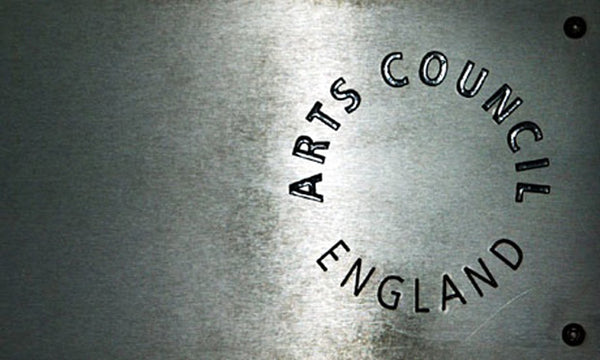
Last week we looked at how the cuts in education grants, increase in tuition fees and rent prices will allow only the privileged to go to university to study fashion resulting in even fewer BAME (black, asian, minority, ethic) designers. However I want to take this further and look at what opportunities and funding there are for new designers across the country as well as why politicians need to care more about fashion.
Over the years funding for the Arts Council has slowly been in decline, in 2012/3 there was £472m allocated to the Arts Council which dropped to £451m in 2014/5, since the coalition government there has been an overall cut of 33%. We are of course in a time of economic difficulty however I feel that the arts, including fashion are being unfairly targeted as unimportant and an easy target for cuts. These cuts will mean a loss of jobs and could lead to the privatisation of museums which would in turn mean introducing entrance fees and then only the privileged few who could experience art and culture. The worse thing that could happen is the shutting down of museums which have so often showcased the words of and been inspirational to designers such as Alexander McQueen and Vivienne Westwood.
Another problem with the Arts Council funding is the ratio of funding inside to outside of London. Since 1995 Arts Council England has distributed £3.5bn, of which £1.35bn (39.1%) has been given to programmes in London. Per capita this translates to £185 per capita in London in contrast to £46.77 for the rest of England. This encourages art to be concentrated into London and this is especially true for fashion: London Fashion Week, Graduate Fashion Week, UAL as well as many fashion and textile museums. Fashion has to happen in London which is unfair to other parts of the country which are deprived of opportunities and events in the fashion industry. Secondly the high rents and costs associated with London make it harder for people to live and work in the capital. This deters many people from working in the fashion industry. Darren Henley, CEO of Arts Council England has attempted to rectify this by changing the ratio of funding (outside London: inside London) from 70:30 to 75:25 by 2018. Henley calls this “a significant shift” whilst also maintaining “London’s status as a world capital of the arts”.
One example of Arts Council funding outside of London is the city of culture which in 2013 was Derry, Northern Ireland. In terms of fashion events there were seminars, workshops, shows and vintage fairs. These events bring interest to the area but often this interest disappear if funding disappears. In terms of Derry, a city centre fashion hub has been announced, designed to be a space for designers where they can make and sell their garments. Thankfully these spaces are licensed to everyone “from start-ups in their infancy right through to establish designers”, according to Deirde Wild, Business and Development Manager of the Fashion and Textile Design Hub. Here young designers are given the opportunity and space to work and be creative, often this is not the case as investors prefer to help already established designers and artists who could guarantee a return on their money.
The cuts to the Arts Council funding shows politicians need to care more for the creative industries. In the last general election there was one mention of the fashion industry and it was in the Conservative manifesto. The mention was described by Emma Allwood (Dazed and Confused) as “a throwaway sentiment about the value of Britain’s creative industries”. This is all despite in 2013 the fashion industry contributing 1.7% of total UK GDP at £20.9bn. As a whole the creative industries produce £850m in UK exports, employing 110,000 people (0.45% total employment) and when indirect impacts are taken into consideration 260,300 people are employed in arts and culture industry.
We feel that the arts and culture are undervalued by politicians despite contributing massively to the economy and to people’s livelihoods. We fear that politicians are ignoring the fashion industry is to due to its perceived frivolity as a feminine past time and as a constantly changing spectacle. Overall we feel that it is necessary to support our present and future fashion designers and maintain our position in the global fashion industry and more importantly how this industry supports our culture.
Written by George Toon, contributor for Erebus.
